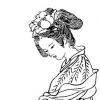-
Content count
35 -
Joined
-
Last visited
Everything posted by sufidao
-

help with understanding pre and post heaven unifiying with man
sufidao replied to spiraltao's topic in Daoist Discussion
The thing which has kept Daoism as a pure metaphysical expression of the Chinese spirit, is looking reflectively backward at its old texts and constant usage of ancients' terms. The modern pragmatist usage of this tradition has nothing in common with real Daoism but some dangerous forms which always have the potentiality of harming to its practitioners. 上言者下用也,下言者上用也;上言者常用也,下言者權用也。 "The greater words are less applicable; the lesser words are highly applicable. But the application of greater words is eternal, while that of the lesser words is temporary." - Wenzi (文子), Chapter V, 道德. -

help with understanding pre and post heaven unifiying with man
sufidao replied to spiraltao's topic in Daoist Discussion
Are you sure that 天 can have the meaning of "a day" in Old Chinese? -

help with understanding pre and post heaven unifiying with man
sufidao replied to spiraltao's topic in Daoist Discussion
Let me first say that I don't have any knowledge of practical Baguazhang. But we should guard about some misunderstandings may occur using two terms of xian tian 先天 (earlier Heaven) and hou tian hou tian 後天 (later Heaven). First of all, we should know these two terms are too old and involve with the topic of Bagua in the Yijing. When you translate the terms in pre and post Heaven, it totally transforms the nature of the teaching and makes lots of misunderstandings. As far as I know, these two terms refer to two kinds of aranngement of Bagua (eight triagrams of the Yijing) in a circle. xian tian or earlier Heaven is the arrangement ascribed to Fuxi, and the other, hou tian or later Heaven is the arrangement made by King wen. In Fuxi's exposition of Bagua, earlier Heaven arangement, Heaven conforms to south, Earth to north, and so on, but in King wen's exposition, later Heaven arrangement, Heaven conforms to northwest, Earth to southwest and so forth. Ok, lets see it in a table: Earlier Heaven (Fuxi)---------------Direction---------------Later Heaven (Wen Wang) Heaven----------------------------------South--------------------Fire Wind----------------------------------Southwest-----------------Earth Water-------------------------------------West--------------------Lake Mountain------------------------------Northwest----------------Heaven Earth------------------------------------North---------------------Water Thunder------------------------------Northeast------------------Mountain Fire----------------------------------------East--------------------Thunder Lake---------------------------------Southeast--------------------Wind Surely, as snowmonki stated, these two terms refer to two metaphysical states, and so relevant aspects of Daoism that, as he said, makes Daoism what it is. But I think uncertainly that these two terms in practices of Bagua Zhang must refer to some distinguishments in directions of walking or running as well. -

This Video Just Punched Me in the Face
sufidao replied to Lucky7Strikes's topic in General Discussion
I don't know what way you follow, but I didn't hear anything, in this video, against the spiritual teachings of the East or the West. Simply, he explained you cannot be identified with your limited mundane routine life and at the same time have the longing for salvation or whatever a Sadhana ends on. Now, I'm really curious to know what caused you to say such inimical words about him. It seems to me that these days, being a fundamentalist is not something strange. One needs only to look at himself: if his thoughts doesn't have a foundation so he can be happy to be a fundamentalist, since he is able to assault on everybody insanely without any reason. -
Send me an email I have somethings to share with you.
-
Tanks a lot for your guidance What a pithy qoutation, it is similar to 'the state of sleeping without any dream' which is the highest degree of being Universal Man in the Vedanta as is in the Upanishads and Hinduism. Now this term (jun ren) is as much as strange for us that is in the most familiar mode for Guenon. He tell about it easily and in different places as such and always reagarding to Daoism. Anyway Junzi (君子) originally is not a Confucian term but in the Yijing we see it all over of the book. zi (子) can be translated as 'Master' and oldest pictographs of jun (君) refer to a person who has a rod in his right hand. I guess that junzi in the Yinjing is higher degree of man who is not man yet and then we should not use ren (人) for jun. Also I saw a renjun (人君) which may be the same and refer to one who passed the human states. Anyway I dont know if any of these gusses be true. Thank you very much.
-
It is good fortune for me to aks my indefinite questions about special terms in Daoism Apologize me if those be from my rudimentary mind. I have read about two different degrees of man states in Daoism, that is of "True Man" (pinyin: zhen ren) and "Transcendent Man" (jun ren).* I know the characters of the first is 真人; but i have not find any proper character for jun that means "Transcendent". May it be 君, I dont know; but whatever I search for it, there is no much results for 君人 in the texts like Laozi, Zhuangzi, Liezi, Taiping jing, Wenzi and so on, as be suitable for that highest degree of human states. I am thankful much of you if liberate me from this unknowing by led to the Unknowing! * I Read it here, Guenon, Rene, The Great Triad, Sophia Perennis.

